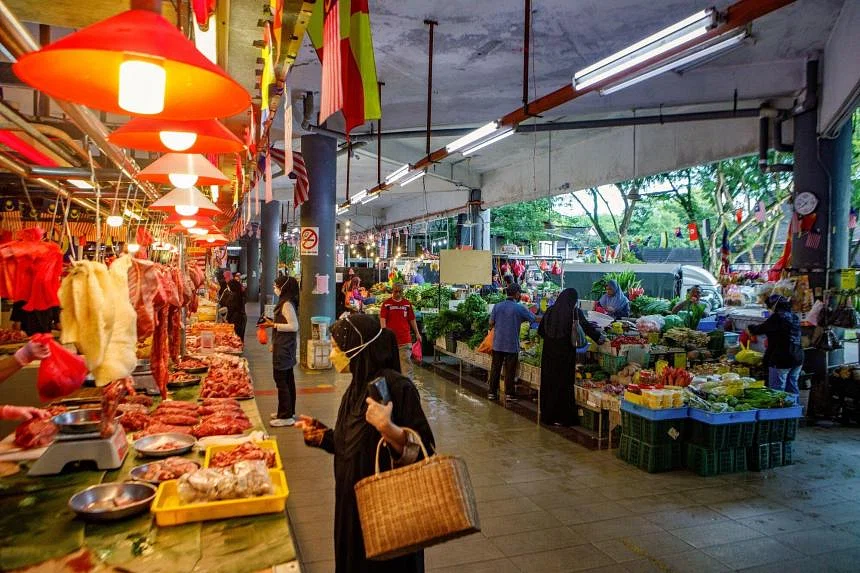KUALA LUMPUR – Rising costs of living are expected to hit Malaysia’s middle- and high-income households the hardest in 2024, as the government shifts to targeted subsidies for fuel and electricity, and imposes tax hikes as part of its economic reforms.
Household budgets for these two groups will be significantly squeezed in the second half of 2024, say economists, as they will not qualify for state assistance and will also have to grapple with higher prices of imported goods due to shipping disruptions in the Red Sea.
“Although both the middle- and high-income households will feel the pressure, the most vulnerable would be the middle-income earners as they tend to have lower savings compared with the high-income households,” said Mr Mohd Afzanizam, chief economist and social finance head at Bank Muamalat Malaysia.
Malaysia categorises household income levels as B40, for the bottom 40 per cent of income earners; M40, the middle 40 per cent; and T20, the top 20 per cent of earners.
M40 households have a gross monthly income of between RM5,250 (S$1,490) and RM11,819. Families with higher earnings, the T20, are considered high-income, while B40 households earn a gross monthly income of below RM5,250.
Utility bills are among the big-ticket items set to rise.
From Feb 1, monthly household water bills will rise between RM1.60 and RM8 in 11 states in Peninsula Malaysia and three federal territories, to fund new water-treatment plants and fix leaking pipes.
For the first six months of 2024, monthly electricity bills will rise by an average of RM22 for domestic users paying between RM230 and RM738. This is part of the government’s plan to lower expenditure on electricity subsidies, by adjusting tariffs every six months to reflect changes in fuel prices or other generation-related costs. In 2023, targeted electricity subsidies helped save the government RM4.6 billion.
From March, Malaysia also plans to increase the service tax on water and power to 8 per cent from 6 per cent.
The largest chunk of the government’s subsidy bill, whose total is estimated to exceed RM81 billion for 2023, is for petrol, diesel and liquefied petroleum gas. The government is expected to withdraw petrol subsidies for the T20 group by the second half of 2024, a move which would add between RM15 billion and RM17 billion to its coffers.
All this comes on top of the lifting of price controls on chicken in October 2023, which was aimed at reducing subsidies and regulating supply, but has also resulted in prices rising by as much as 17 per cent in November.
Savings from subsidy cuts will be channelled to the low-income group in the form of cash aid, Prime Minister Anwar Ibrahim has said.
An M40 income-earner, who wanted to be known only as Ms Anuradha, said it has become harder to live comfortably on a single income as prices of basic necessities have increased.
“I am surprised that now, when I buy daily goods such as milk, eggs, bread and vegetables, the bill is already between RM50 and RM100, which is double (what it was) six months ago. About 30 per cent of my total expenditure goes into buying groceries,” the 40-year-old e-commerce entrepreneur told The Straits Times.

